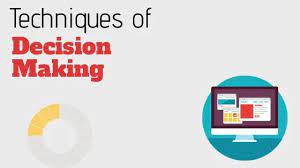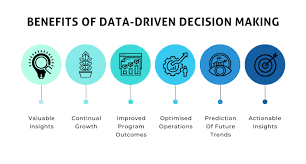The Effects of Extreme Indecisiveness on Daily Life
Indecisiveness is a common trait that many people experience from time to time. However, for some individuals, indecisiveness can become extreme and have a significant impact on their daily lives.
Extreme indecisiveness can manifest in various ways, such as difficulty making even simple decisions, constant second-guessing, and feeling overwhelmed by choices. This can lead to a range of negative consequences, including increased stress and anxiety, missed opportunities, strained relationships, and decreased productivity.
One of the main effects of extreme indecisiveness is the feeling of being stuck or paralyzed when faced with choices. This can result in procrastination and avoidance behavior, further exacerbating the problem. Over time, this pattern can lead to a sense of helplessness and low self-esteem.
In addition, extreme indecisiveness can impact relationships with others. Constantly seeking reassurance or input from others before making a decision can strain friendships and partnerships. It can also lead to resentment from others who may feel burdened by the indecisive individual’s inability to take action.
Furthermore, extreme indecisiveness can hinder personal growth and development. By avoiding making decisions or taking risks, individuals may miss out on valuable opportunities for learning and self-improvement. This can ultimately limit their potential for success and fulfillment in various aspects of life.
It is important for individuals struggling with extreme indecisiveness to seek support and guidance. Therapy, counseling, or coaching can help address underlying issues contributing to indecisiveness and develop strategies for making decisions more confidently. Mindfulness practices, such as meditation or journaling, can also be beneficial in increasing self-awareness and reducing anxiety related to decision-making.
In conclusion, extreme indecisiveness can have profound effects on one’s daily life, affecting mental health, relationships, and personal growth. By recognizing the impact of indecisiveness and seeking appropriate support, individuals can work towards overcoming this challenge and leading a more fulfilling life.
Understanding and Overcoming Extreme Indecisiveness: Answers to Common Questions
- What is severe indecisiveness a symptom of?
- What causes extreme indecisiveness?
- Is indecisiveness a mental disorder?
- How do I fix my indecisiveness?
- What is at the root of indecisiveness?
- Is indecisiveness a symptom of ADHD?
- Is there a mental disorder for being indecisive?
What is severe indecisiveness a symptom of?
Severe indecisiveness can be a symptom of various underlying issues, including anxiety disorders, perfectionism, low self-esteem, and fear of making mistakes. Individuals who struggle with severe indecisiveness may also experience analysis paralysis, where they overthink decisions to the point of feeling overwhelmed and unable to choose. Seeking professional help from a therapist or counselor can provide valuable insights into the root causes of severe indecisiveness and help develop coping strategies to navigate decision-making more effectively.
What causes extreme indecisiveness?
Extreme indecisiveness can be caused by a variety of factors, including underlying anxiety or fear of making the wrong choice, perfectionism leading to unrealistic expectations, lack of self-confidence or self-trust, past experiences of negative outcomes from decisions, and overthinking due to a desire to control every possible outcome. Additionally, certain personality traits, such as being highly sensitive or having a strong need for approval from others, can contribute to extreme indecisiveness. Understanding the root causes of this behavior is crucial in addressing and overcoming extreme indecisiveness to lead a more confident and fulfilling life.
Is indecisiveness a mental disorder?
The question of whether indecisiveness is a mental disorder is a common one among individuals struggling with this issue. While indecisiveness itself is not classified as a standalone mental disorder in diagnostic manuals such as the DSM-5, it can be a symptom of various mental health conditions, such as anxiety disorders, obsessive-compulsive disorder (OCD), and depression. Persistent indecisiveness that significantly impairs daily functioning and quality of life may warrant further evaluation by a mental health professional to determine if an underlying mental health condition is present. Seeking professional guidance can help individuals better understand the root causes of their indecisiveness and explore appropriate treatment options to address any related mental health concerns.
How do I fix my indecisiveness?
Addressing extreme indecisiveness requires a combination of self-awareness, practice, and potentially seeking professional guidance. To begin addressing this issue, it can be helpful to identify any underlying causes or patterns contributing to your indecisiveness. Developing a decision-making process that works for you, setting clear priorities, and breaking down choices into smaller steps can also aid in making decisions more manageable. Additionally, practicing mindfulness techniques, such as deep breathing or meditation, can help reduce anxiety and increase clarity when faced with choices. Seeking support from a therapist or counselor specialized in cognitive behavioral therapy (CBT) can provide valuable tools and strategies to overcome indecisiveness and build confidence in decision-making abilities.
What is at the root of indecisiveness?
At the root of indecisiveness lies a complex interplay of psychological, emotional, and cognitive factors. Indecisiveness can stem from a fear of making the wrong choice, perfectionism, low self-esteem, lack of confidence, or past experiences of negative outcomes. Additionally, overthinking, analysis paralysis, and difficulty prioritizing options can contribute to indecisiveness. Understanding the underlying causes of indecisiveness is crucial in addressing and overcoming this challenge. By exploring these root causes through self-reflection, therapy, or guidance from professionals, individuals can gain insight into their decision-making patterns and develop strategies to make choices with greater clarity and confidence.
Is indecisiveness a symptom of ADHD?
Indecisiveness can indeed be a symptom of ADHD. Individuals with ADHD may struggle with decision-making due to difficulties with executive functions, such as organization, planning, and prioritizing tasks. This can lead to indecisiveness and trouble making choices, as well as a tendency to become easily overwhelmed by options. It is important for individuals experiencing persistent indecisiveness along with other symptoms of ADHD to seek a professional evaluation for proper diagnosis and treatment. Addressing ADHD symptoms through therapy, medication, or other interventions can help improve decision-making abilities and overall quality of life for those affected.
Is there a mental disorder for being indecisive?
Many individuals wonder if extreme indecisiveness is indicative of a mental disorder. While indecisiveness itself is not classified as a standalone mental disorder in diagnostic manuals such as the DSM-5, it can be a symptom or feature of various mental health conditions, such as anxiety disorders, obsessive-compulsive disorder (OCD), and depression. Persistent indecisiveness that significantly impairs daily functioning and quality of life may warrant further evaluation by a mental health professional to determine if an underlying mental health issue is present. Seeking professional guidance can help individuals better understand the root causes of their indecisiveness and explore appropriate treatment options to improve decision-making skills and overall well-being.




